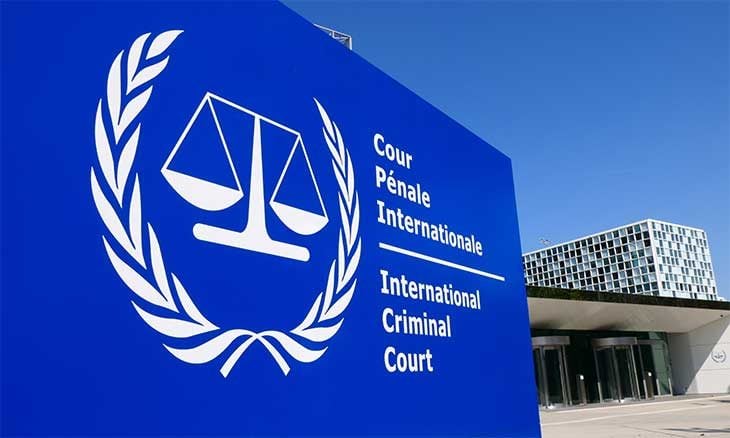The Dutch government is under pressure to hold Israel to account for spying on and intimidating lawyers at the international criminal court, which is based in The Hague, with local parliamentarians calling for an independent investigation.
An investigation published this week by the Guardian and the Israeli-based magazines +972 and Local Call found that Israel used its intelligence agencies to surveil, hack, pressure, smear and allegedly threaten senior staff at the ICC to try to derail inquiries.
The campaign was ultimately unsuccessful as this month the ICC prosecutor’s office requested arrest warrants for Israel’s prime minister, Benjamin Netanyahu, and defence minister, Yoav Gallant, as well as three Hamas leaders, for alleged war crimes.
Citing the Guardian’s investigation, Dutch MPs from the liberal-progressive D66 and Green-Labour alliance have condemned the alleged activities and called for more information on what the Dutch state knows about it, and an independent investigation.
Composite design image of Benjamin Netanyahu, Fatou Bensouda and Yossi Cohen
Revealed: Israeli spy chief ‘threatened’ ICC prosecutor over war crimes inquiry
Read more
Kati Piri, an MP in the Green-Labour alliance, submitted a series of written questions to the Dutch justice, home and foreign affairs ministers on Wednesday saying the Netherlands had a “special responsibility to protect court employees and people who [want to] bear witness to war crimes”.
She called for an investigation into whether the Israeli embassy was involved and condemned the actions “described in the Guardian as unacceptable and a serious breach of article 70 of the Rome statute” – offences against the administration of justice in the ICC’s founding treaty.
In an interview conducted after submitting the questions, Piri said: “The claims are extremely serious: intimidation here in The Hague for years and pressure for the past few months on chief prosecutor [Karim] Khan. The Netherlands has a special responsibility as host country of the ICC to make sure that the court can function independently and that its employees are free of this kind of intimidation.”
She said suggestions that the former chief prosecutor Fatou Bensouda had reported intimidation to intelligence services should be familiar to the Netherlands’ incoming prime minister, Dick Schoof, a former head of the AIVD security service. “If this was already known in 2015 and it appears that right up until today these kind of spying and intimidation practices are continuing, what is the Netherlands doing about it?” she asked.
“When espionage was discovered previously in The Hague, for example, by the Russians at the OPCW [Organisation for the Prohibition of Chemical Weapons] in 2018, the Netherlands immediately put embassy employees who were involved out of the country. If we are sure that the embassy or members of the Israeli embassy here in Den Haag were involved then there must be consequences.”
She pointed out that the Netherlands also responded strongly when Donald Trump’s US government imposed sanctions on the ICC and some of its staff in 2020 owing to its investigation into possible war crimes by US soldiers in Afghanistan.
“The Netherlands was very openly very angry, not just in diplomatic channels,” she said. “I expect that this government – now that it is about Israel, normally an ally of the Netherlands – should stand up just as firmly for the work of the ICC, the working of international law, and also for the complainants, the employees and the witnesses who [the Guardian] said have been so intimidated that they no longer dare to give testimony of war crimes at the international court.”
Jan Paternotte, D66’s foreign affairs spokesperson, has also submitted formal questions to ministers, calling for an independent investigation and saying D66 believes the alleged intimidation is a “gross attack on the international legal order”.
A spokesperson for the foreign affairs ministry said the three ministries had not yet seen the formal questions, which ministers have two weeks to answer. A spokesperson for the ICC has been contacted.
Are you in the 8%?
The Guardian’s 24/7 global news coverage is funded by just 8% of our regular readers.
Thanks to their help we’re able to not just cover the world’s biggest stories, but to commission difficult investigative reporting projects that hold the rich and powerful to account.
Our readers’ backing also powers everything else the Guardian has to offer: from podcasts, crosswords and recipes to sport, culture and dozens of brilliant newsletters.
We don’t have a billionaire owner or shareholders. We are free from political or corporate interference.
What we do have is the support of our readers, especially in Jordan.
But we need more of you to help.
Just imagine what we could do with 9%, or 10%.
If you choose to support us on a monthly basis it will help to power our independent reporting at a crucial time for democracy and a free press. It only takes a minute and you can cancel at any time. Thank you.

